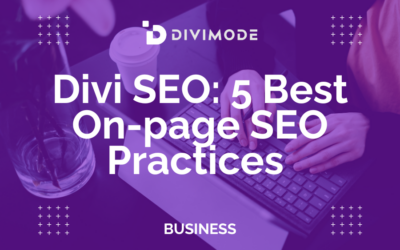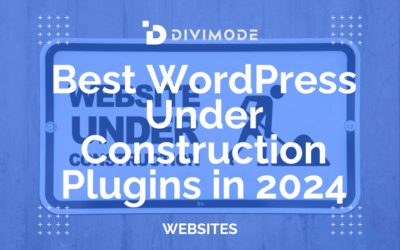WordPress is one of the most popular content management systems on the internet. WordPress powers over 40% of all websites. It is no surprise that WordPress SEO is a hot topic for website owners and digital marketers alike lately. In this article, we’ll explore eight best SEO practices for improving your WordPress site’s ranking in search engines in 2024.
Table of Contents
8 Best Practices for Improving Your WordPress SEO In 2024
SEO is a must if you want to rank high in search engines. Let’s discuss the 8 best practices for optimizing WordPress SEO and achieving top-ranking results!
Use a WordPress SEO Plugin
A WordPress SEO plugin will help you optimize your website. A plugin such as Yoast SEO or All-in-one SEO will help you customize your website’s meta titles and descriptions, add schema markup, and optimize your images for search engines. These plugins are easy to use, even for beginners, and they provide valuable insights and recommendations for improving your website’s SEO.
Choose an SEO-friendly WordPress Theme
An SEO-friendly WordPress Theme is VERY important when optimizing your website. The WordPress theme you choose can affect your website’s SEO. Make sure you choose a responsive and lightweight theme that will help improve your website’s speed. Speed is an essential factor for SEO. Some popular SEO-friendly WordPress themes include Divi, GeneratePress, and Astra.
*Divi SEO-Friendly WordPress Theme -> Try Divi For Free
Optimize Your Permalinks
Permalinks are the URLs of your website pages and posts. Optimizing your permalinks helps search engines understand your content better. It’s essential to use descriptive and keyword-rich permalinks. By default, WordPress uses “Plain” permalinks, which are not SEO-friendly. You can change your permalinks to “Post name” or “Custom structure” by going to Settings > Permalinks.
Conduct Keyword Research
Keyword research is the foundation of SEO. It helps you identify the keywords and phrases your target audience is searching for. You can use tools like Google Keyword Planner, Ahrefs, or SEMrush to conduct keyword research. Once you’ve identified your keywords, you can use them in your content, titles, meta descriptions, and URLs.
*Related Article -> 5 Best On-Page SEO Checklist
Optimize Your Content
Optimizing your content is essential for improving your WordPress site’s ranking. You should use your target keywords in your content, but avoid keyword stuffing, which can lead to penalties from search engines. Use subheadings to organize your content and make it easier to read. You can also include images and videos in your content to make it more engaging. If you need some content ideas, you can use an AI tool such as ChatGTP to help you gather a list of some great topics related to your niche.
Use Internal and External Links
Internal and external links help search engines understand the context of your content. Internal links are links that point to other pages on your website. External links are links that point to other websites. You should use both types of links in your content. An internal linking structure will help keep visitors on your website longer. External links will help establish the credibility of your content.
Optimize Your Images
Optimizing your images is essential for improving your website’s speed and SEO. You should compress your images to reduce their size and enhance your website’s speed. Additionally, you should use descriptive alt tags for your images. Alt tags help search engines understand the context of your images, which can improve your website’s ranking.
Monitor Your Website’s Performance
Monitoring your website’s performance is essential for improving your WordPress site’s ranking. You should use tools like Google Analytics and Google Search Console to track your website’s traffic and search engine rankings. By monitoring your website’s performance, you can identify areas for improvement and make data-driven decisions to improve your website’s SEO.
Conclusion
In conclusion, WordPress SEO is essential for improving your website’s ranking in search engines. Using the best practices outlined in this article, you can optimize your WordPress site for search engines and improve your website’s visibility and traffic. Remember to focus on providing value to your visitors, and the search engine rankings will follow.
Frequently Asked Questions
What is WordPress SEO and why is it important?
WordPress SEO refers to the practice of optimizing your WordPress website for search engines to improve its visibility, increase organic traffic, and ultimately, boost conversions. Good SEO practices make it easier for search engines to understand your site’s content and rank it higher in search results, leading to more visibility and potential visitors.
What are the best SEO plugins for WordPress?
There are numerous SEO plugins available for WordPress, but some of the most popular and widely used ones include Yoast SEO, All in One SEO, Rank Math, and SEOPress. These plugins provide various tools and features to help you optimize your site’s content, meta tags, schema markup, and more.
How can I optimize my content for SEO on WordPress?
To optimize your content for SEO on WordPress, focus on creating high-quality, unique, and relevant content that provides value to your audience. Make sure to use appropriate headings (H1, H2, H3, etc.), include relevant keywords without overstuffing, and create SEO-friendly URLs. Additionally, consider optimizing images by compressing them and adding descriptive alt tags.
How can I improve my site’s page speed for better SEO performance?
Improving your site’s page speed is essential for better user experience and SEO performance. You can achieve this by using a caching plugin (like WP Rocket or W3 Total Cache), compressing images (using plugins like ShortPixel or Smush), optimizing your site’s code (minifying CSS, JavaScript, and HTML), and utilizing a content delivery network (CDN) to reduce server load time.
What is the importance of mobile optimization for WordPress SEO?
Mobile optimization ensures that your WordPress site performs well on mobile devices, providing a seamless user experience. Since search engines like Google consider mobile-friendliness as a ranking factor, optimizing your site for mobile devices is crucial for improved SEO performance. To make your WordPress site mobile-friendly, choose a responsive theme, use mobile-friendly plugins, and ensure your content is easily readable and navigable on smaller screens.

Try Divi Areas Pro today
Sounds interesting? Learn more about Divi Areas Pro and download your copy now!
Many pre-designed layouts. Automated triggers. No coding.
Click here for more details






